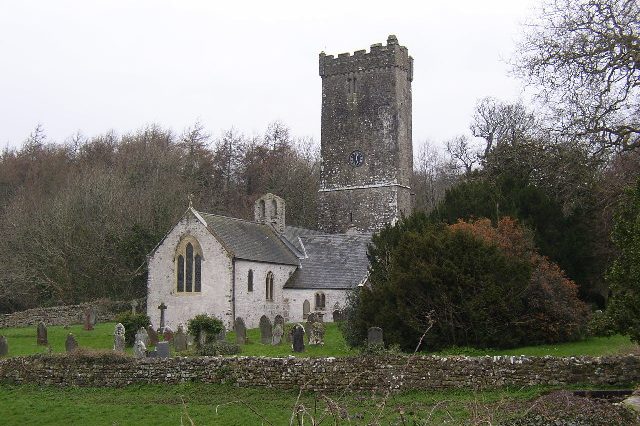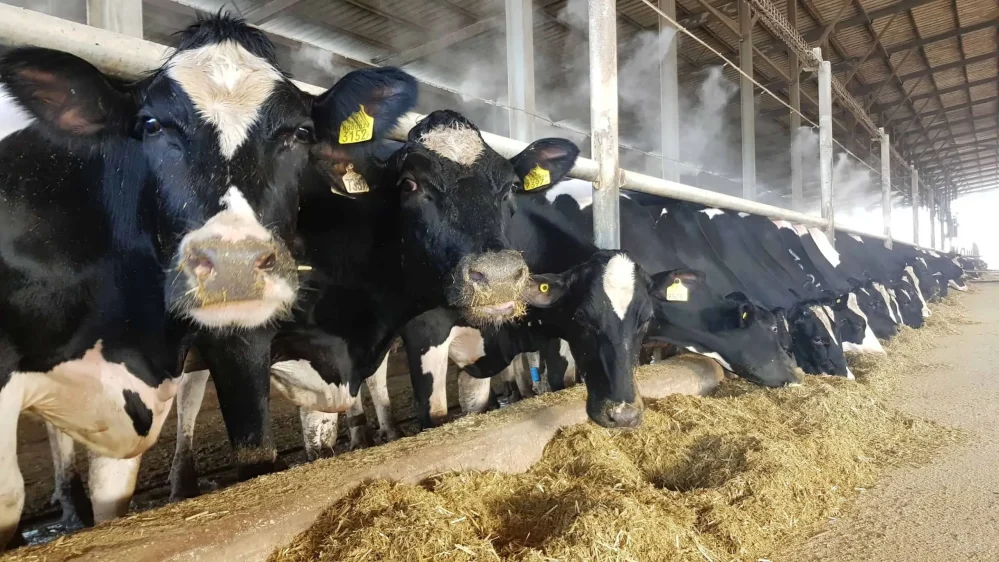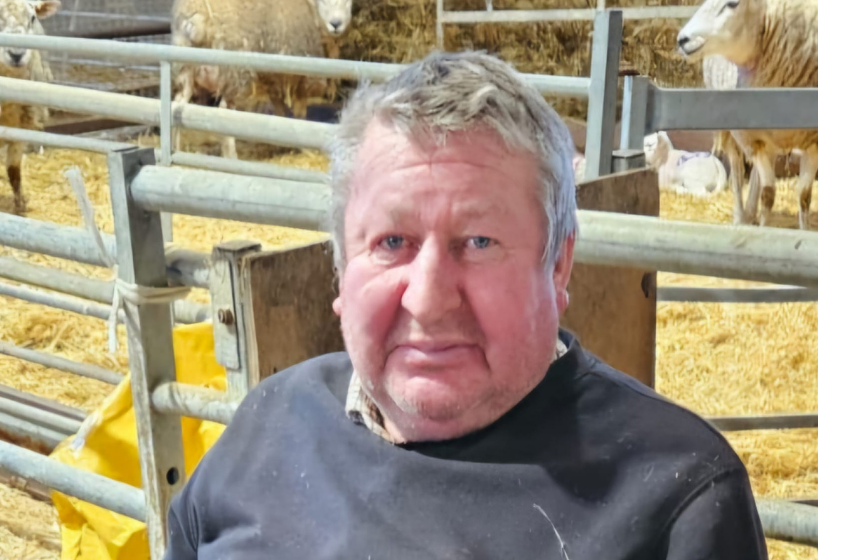Farming
NFU Cymru President, John Davies: ‘Much work ahead’

AS WE close the book on what has been an eventful year, I’d like to survey the events of 2019 and look ahead to see what is on the horizon in 2020.
We’ve just emerged from the third UK General Election in four years, following what has been a period of extraordinary political instability. The result of December’s election gives the Prime Minister the majority he has been seeking to take forward his Brexit plans. Although in legal terms we cease to be an EU Member State at the end of January, there is much work ahead to secure the access we need to our nearest and most valuable export market.
Although uncertainty persists, I am ambitious for our sector. Wales’ farmers have the skills, natural resource base and ambition from which to rise to future challenges and opportunities which lie ahead. These opportunities include increasing our self-sufficiency by producing more high-quality food, securing new export markers and becoming producers of the most climate-friendly food in the world by becoming zero net emitters of greenhouse gases by 2040.
Leaving the EU at the end of January based on the current withdrawal agreement means that we enter a transition period, during which time we continue to enjoy access to the EU’s single market. We must ensure that when that transition ends, we can access that market on the most favourable terms possible, with tariff and non-tariff barriers eliminated wherever possible. The UK’s government must also avoid a situation whereby the transition period elapses without having reached an agreement on a future trading relationship with the EU, culminating in us trading with the EU on WTO terms.
Trade talks with third countries will begin soon and one point I have been making consistently, and for some time now, is that we must not allow our own high environmental and animal welfare standards to be undermined in any future trade agreements that the UK may enter into. I, therefore, want 2020 to be the year in which the new government moves ahead with the creating of a Trade and Standards Commission, which will be tasked with ensuring our high standards are upheld and respected in any future trade agreements with third countries.
2019 also saw the second stage of the Welsh Government’s consultation on the future of agricultural policy in Wales. The ‘Sustainable Farming and our Land’ consultation followed its 2018 predecessor, ‘Brexit and our Land’, and we were pleased to see these revised proposals including future support around the principle of sustainability. The union remains concerned, however, that the proposals suggest the continued supply of vital economic, social and cultural benefits provided by Welsh farming currently can be secured through what is, essentially, an agri-environment scheme. I’d like to once again thank all farmers and those living in our rural communities who responded to the consultation. We now wait for the Welsh Government to analyse the responses and bring forward the next stage of the process in 2020.
Sadly, as we welcome in the New Year, around 650 cattle farmers in Wales are affected by bovine TB restrictions and this, of course, has a significant knock-on effect on their business and family. NFU Cymru continues to lobby the Welsh Government to review its bovine TB eradication strategy and deliver a more holistic policy that tackles this disease across all its vectors. A peer-reviewed scientific report examining the effectiveness of badger culling in reducing outbreaks of TB in cattle has shown positive results in Gloucestershire and Somerset and we now look to Welsh Government to listen to the science and use all of the tools at its disposal to control the reservoir of disease in wildlife – not just through cattle controls. We also need the Welsh Government to look at the support for chronic herds in Wales and the massive impact long term breakdowns are having on these businesses.
On the dairy side, we look forward to a long-awaited consultation on statutory milk contracts. There are examples of good practice out there but what other industry would allow six weeks of payments in arrears and for processors to adjust prices at a whim? Of course, we want processors to have successful profitable businesses, but we need the same for our milk producers. After all, these are the people taking the price risk when product prices fall. This has to change as evidenced by the latest Welsh Government farm statistics when dairy farm income fell by a massive 43% in the year ending March 2019 compared to the previous 12 months. Statutory contracts will help bring back some stability which the sector needs right now.
Against the backdrop of Brexit uncertainty and low market returns, the threat of regulation continues to weigh heavily on farmers’ minds. Back in November 2018, the Welsh Government announced regulatory measures covering the whole of Wales to protect water quality from agricultural pollution coming into force in January 2020. From information provided by the Welsh Government in early 2019, it is clear the proposed new regulations are whole territory Nitrate Vulnerable Zones (NVZ) with the NVZ Action Programme requirements applied across the whole of Wales.
The Minister, in December 2019, confirmed that she will be considering advice from officials in January on the introduction of agricultural regulations following further engagement. NFU Cymru categorically rejects any proposals which include the introduction of the Nitrates Directive and Nitrate Vulnerable Zones (NVZ) across the whole of Wales. This is based on the evidence which shows an all-Wales approach simply cannot be justified; that the existing NVZs in Wales have had limited effectiveness. The great harm an all-Wales NVZ will do to farm businesses and our rural communities, which greatly outweigh any benefits to water quality, cannot be justified. We are clear, an all-Wales NVZ approach is not evidence-based, proportionate or targeted and we continue to work tirelessly to emphasise to Welsh Government the devastating impacts that an all-Wales NVZ approach will have. We urge the Minister to recognise that poor regulation serves no one – not government, not society, not the farming industry or the environment – and work with us to develop the framework to support farmers to take action to improve water quality where this is needed.
2019 has also been a year when the glare of the media on Welsh and British farming has not been as balanced as we would expect. I have long said that, as an industry, we are not immune from critique and we relish the opportunity to stand up and promote our values and leading standards. What we do not and will not accept, however, is unbalanced reporting and false news pedalled by those with an agenda against farming. This year NFU Cymru has shown we tackle such behaviour through robust complaints and other means. Please be assured that we are prepared to escalate our actions accordingly if required.
There will no doubt be huge challenges facing our industry in 2020 and beyond. As an industry, we should all be very proud of the role we play and we must remain steadfast in our ambitions to continue to deliver for the people and communities of Wales. As an organisation, NFU Cymru is ambitious for Welsh food and farming. Politicians in both Cardiff and Westminster must commit to working with us to deliver our ambition for a productive, progressive and profitable farming sector that delivers for the whole of Wales
Farming
Farm building scheme near Lawrenny given go-ahead by planners

AN APPLICATION for a storage building at a south Pembrokeshire farm, made by a family member of an officer on Pembrokeshire County Council’s planning service, has been given the go-ahead by the authority’s planning committee.
In an application recommended for approval at the July 23 meeting of the authority’s planning committee, Laura Elliot sought permission for the erection of an agricultural storage building at Tedion Farm, a dairy farm near Lawrenny.
The application had been brought to committee, rather than being delegated to planning officers, due to the family connection.
The farm, near to the Pembrokeshire coast National Park border, comprises 270 milking cows and dairy heifer replacements kept on the farm comprising land over 138 hectares. The farm is mainly down to grass and the cows are paddock grazed in order to utilise grass efficiency.
No objections had been received from local community council Martletwy.
A report for members said: “The application seeks consent for the erection of agricultural storage building. The erection of an agricultural building will be used to store stay, hay and farm machinery.
“The building would be located within the existing farm complex, to the north-east of the site, adjacent to the main farm dwelling. The building will measure 18 metres in length by 13.6 metres in width, with a pitched roof height of 5.71 metres.”
Approval was moved by Cllr Alistair Cameron, seconded by Cllr Brian Hall.
Farming
Fears dairy farm near Kilgetty could increase to 3,000 cattle

PEMBROKESHIRE planners are to visit the site of one of the county’s largest dairy farms after claims were raised a scheme for new calf buildings could lead to animal welfare issues and an increase in the size of the herd to 3,000 cattle.
At the July 23 meeting of the council’s planning committee, an application by Hugh James of Langdon Mill Farms Ltd for a calf building, weaned calf building, and associated yard areas, at Langdon Mill Farm, near Jeffreyston, Kilgetty was recommended for conditional approval.
Local community council Jeffreyston has raised concerns, made by a member of the public, on potential increased noise and odour from the scheme, planners heard.
A supporting statement, through agent Reading Agricultural Consultants, said: “The holding currently has a milking herd of approximately 2,000 cows, which are housed indoors for the majority of the year, with dry cows [cows that are not lactating, prior to calving] and heifers grazed outdoors when weather and soil conditions permit.
“There has been significant investment in buildings and infrastructure at the farm over the last decade in respect of cattle accommodation, slurry storage, milking facilities, Anaerobic Digestion (AD) plant and feed storage. The unit is efficient, achieving yields of more than 10,000 litres/cow/year, with cows being milked three times/day in the 60-point rotary parlour.”
Currently, calves are reared at Langdon Mill Farm for two months before being transported off-site to be reared at a number of third-party farms in the area before being return later; the proposed 61.2m long calf building is required to accommodate young-stock, following separation from the cows, to two-months, with the 164.8m weaned calf building to be used for calves from two months to seven months.
The application says the proposals would “clearly make the enterprise more financially robust by reducing reliance on third party farms”.
However, concerns were raised at the committee meeting by objector Ian Dennis, a former vet of some four decades’ experience, who described Langdon as occupying 3,000 acres of land with 2,000 cattle currently that “are never allowed to graze,” the proposal, he said, would add another 1,000 cattle to the site.
“This is factory farming, an intensive livestock unit, no longer a farm.”
He told planners a “mendacious and incorrect” ammonia emission report submitted by the applicants was “designed to bamboozle,” saying, despite his experience and scientific background, he needed expert support to assess.
He said only average figures were reported, rather than peaks and troughs, adding the “fictitious anaerobic digestion plant” had yet to be built, with planning permission now lapsed.
However, officers told members the applicant’s agent had said works on the digestor had actually started.
On the issue of animal welfare, Mr Dennis said he had “very huge concerns” about the scale of the development, differing from a planning officer report saying the scheme would bring animal welfare benefits.
A suggestion by committee chair Cllr Simon Hancock the application be deferred pending a site visit was unanimously backed by committee members present.
Farming
Family pay tribute to farmer, 65, who died in quadbike accident

A WEST WALES farmer has died after an incident involving a quadbike.
Dyfed-Powys Police have confirmed they attended a report of an incident involving an agricultural quadbike in a field in the Llanilar area of Aberystwyth on July 17.
The force has confirmed that a 65-year-old man died at the scene.
They said that his next of kin have been advised and are being supported by specialist officers. The HM Coroner and Health and Safety Executives have been informed.
His family have paid tribute to him. The family said: “Hugh Tudor was a 65 year old farmer who had farmed at Tynberllan, Llanilar with his wife Ann for over 40 years. He was a devoted father to Sara, Lowri and the late Gwenno.
“Hugh was the son of the late Tom and Sybil Tudor of Glanystwyth and brother to Richard.
“Farming was his life, but he also had a wide range of interests and was actively involved in all aspects of the local community in Llanilar and beyond.
“We would like to thank everybody for their support and kindness during this difficult time.”
-

 Education5 days ago
Education5 days agoMilford Tesco worker achieves Oxford dream and lands top legal job
-

 Crime4 days ago
Crime4 days agoHaverfordwest man admits having nearly 1000 child and animal images
-

 Crime4 days ago
Crime4 days agoYouth set to appear in court over serious sexual offences
-

 Crime4 days ago
Crime4 days agoPolice investigating after man injured during altercation in cemetery
-

 Education4 days ago
Education4 days agoPupils delight in ice cream treat from Pembrokeshire’s number one van
-

 Crime4 days ago
Crime4 days agoTown centre ‘stinking of skunk’ as police strip cannabis farm
-

 Crime3 days ago
Crime3 days agoFag-butt police court summonses spark debate in Pembrokeshire
-

 News6 days ago
News6 days agoProposal to give firefighters a council tax discount to go to Cabinet





























